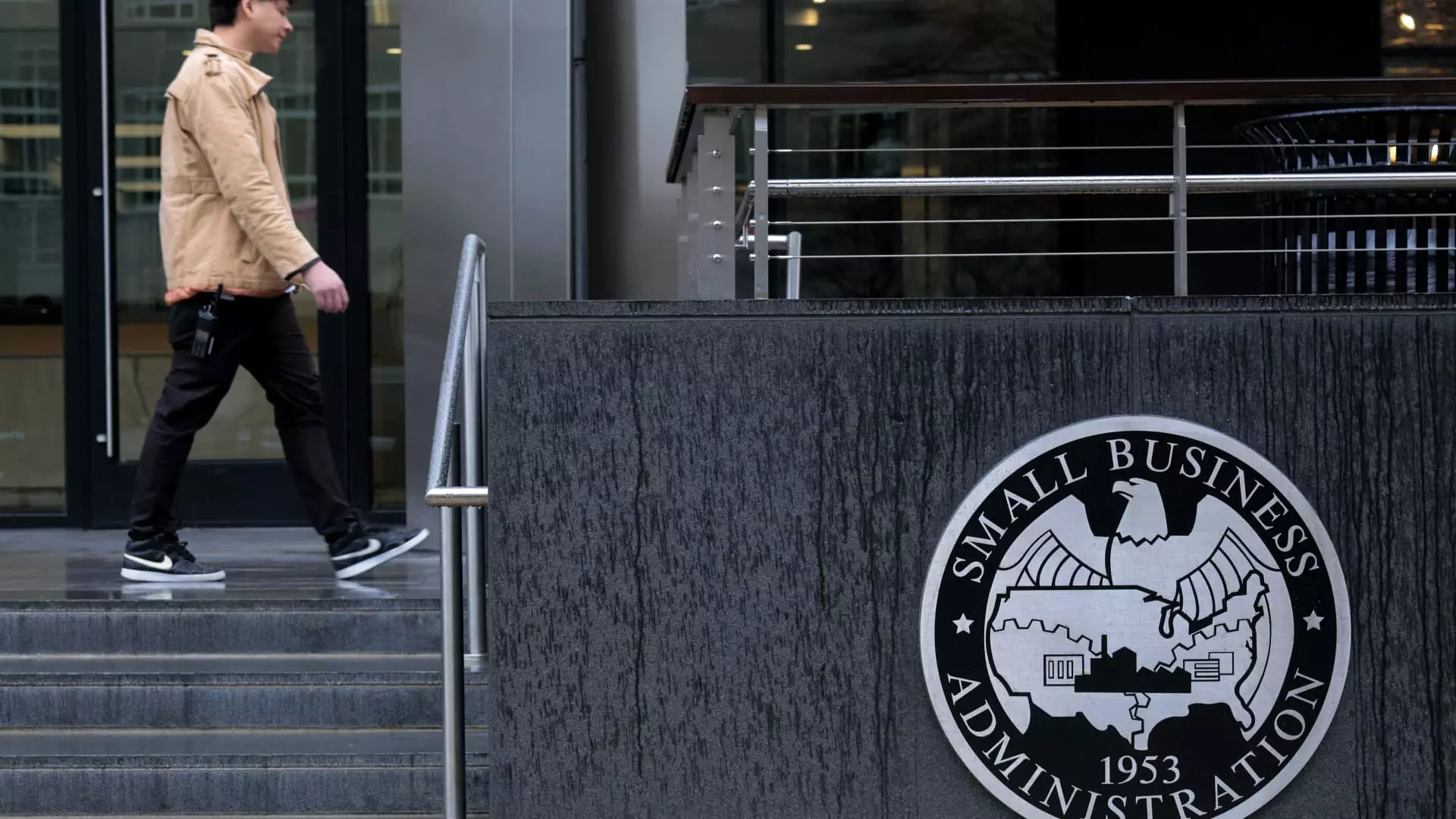In a striking display of judicial power, U.S. District Judge Myong J. Joun’s recent injunction has thwarted President Donald Trump’s audacious plan to shift the management of federal student loans from the Department of Education to the Small Business Administration (SBA). This decision is not merely a legal ruling; it serves as a critical safeguard against what could have been a misguided and chaotic transfer of over 40 million student loan accounts. With this ruling, the inherent complexities of educational financing remain under the purview of those who have historically managed it, rather than being thrust into the hands of an agency ill-equipped for such a monumental responsibility.
The Rationale Behind the Ruling
Judge Joun’s decision highlights the necessity for the U.S. government to maintain a structured and nuanced approach to managing student loans. His ruling, which mandates the reinstatement of more than 1,300 Education Department employees, underscores that effective governance cannot happen in a vacuum. The management of student loans requires specialized knowledge and experience, elements that the SBA lacks. By opposing the transfer, the judge has placed the welfare of nearly 40 million borrowers above the political machinations of the Trump administration.
This situation innovatively illuminates the broader implications of administrative shifts. Proponents of the transfer suggested that it would streamline processes and enhance efficiency. However, experts like Sarah Sattelmeyer eloquently argue that such a move would likely sow confusion rather than clarity. Transitioning student loan management to the SBA would compromise access to crucial education programs designed to help borrowers navigate their financial obligations effectively.
Consumer Advocacy and the Risk of Disruption
The judicial ruling is not simply a matter of organizational structure; it reflects the diligent concerns of consumer advocates who fear the potential fallout of administrative upheaval. History bears witness to disastrous outcomes from corporations and governmental entities changing hands. Smaller-scale transfers within loan servicer networks have led to significant errors—issues that would inevitably be exacerbated in a transition involving federal agencies.
Furthermore, the implications extend beyond mere bookkeeping. The precariousness of borrower protections, particularly regarding programs like Public Service Loan Forgiveness, has surfaced as a contentious topic. Switching over to the SBA, an entity with no experience in managing such a vast network, raises alarm bells about the potential loss of professional oversight that student loan borrowers fundamentally rely on.
Politics and Accountability
In the wake of the judge’s decision, statements from Education Department officials have echoed a tone of defiance. Madi Biedermann’s assertion that the ruling reflects an overreach by “a far-left judge” reveals a distressing trend: the unwillingness to embrace accountability. This polarizing rhetoric detracts from the underlying reality that effective governance should be rooted in expertise, not expediency. It trivializes legitimate concerns harbored by borrowers and advocates who understand the ins and outs of educational financing.
The political landscape surrounding education reform appears marred by opportunism. Trump’s administration’s proposal to shift responsibilities not only demonstrates an alarming disregard for the nuances of educational policy but also mirrors a larger trend of sidelining essential expertise to fit a political agenda. This raises larger questions about the values underpinning educational reform: should efficiency be prioritized over effectiveness? Should the management of student loans be viewed through a lens of profit rather than public service?
Path Forward or Road to Ruin?
Ultimately, Judge Joun’s ruling can be viewed as a line drawn in the sand—a critical check on a government that increasingly seeks to prioritize political ideology over practical governance. While borrowers can breathe a sigh of relief, the future remains precarious. There is a need for continued advocacy and vigilance as the administration explores avenues to pursue its agenda, potentially as misunderstandings regarding student loan management persist.
Navigating these waters requires more than political maneuvering; it necessitates a commitment to protecting the integrity of systems intended to serve the public. As we stand at this crossroads, it is imperative to champion policies that prioritize fairness and support for those who seek access to higher education without the burden of insurmountable debt—an issue too vital to be sacrificed at the altar of political posturing.

